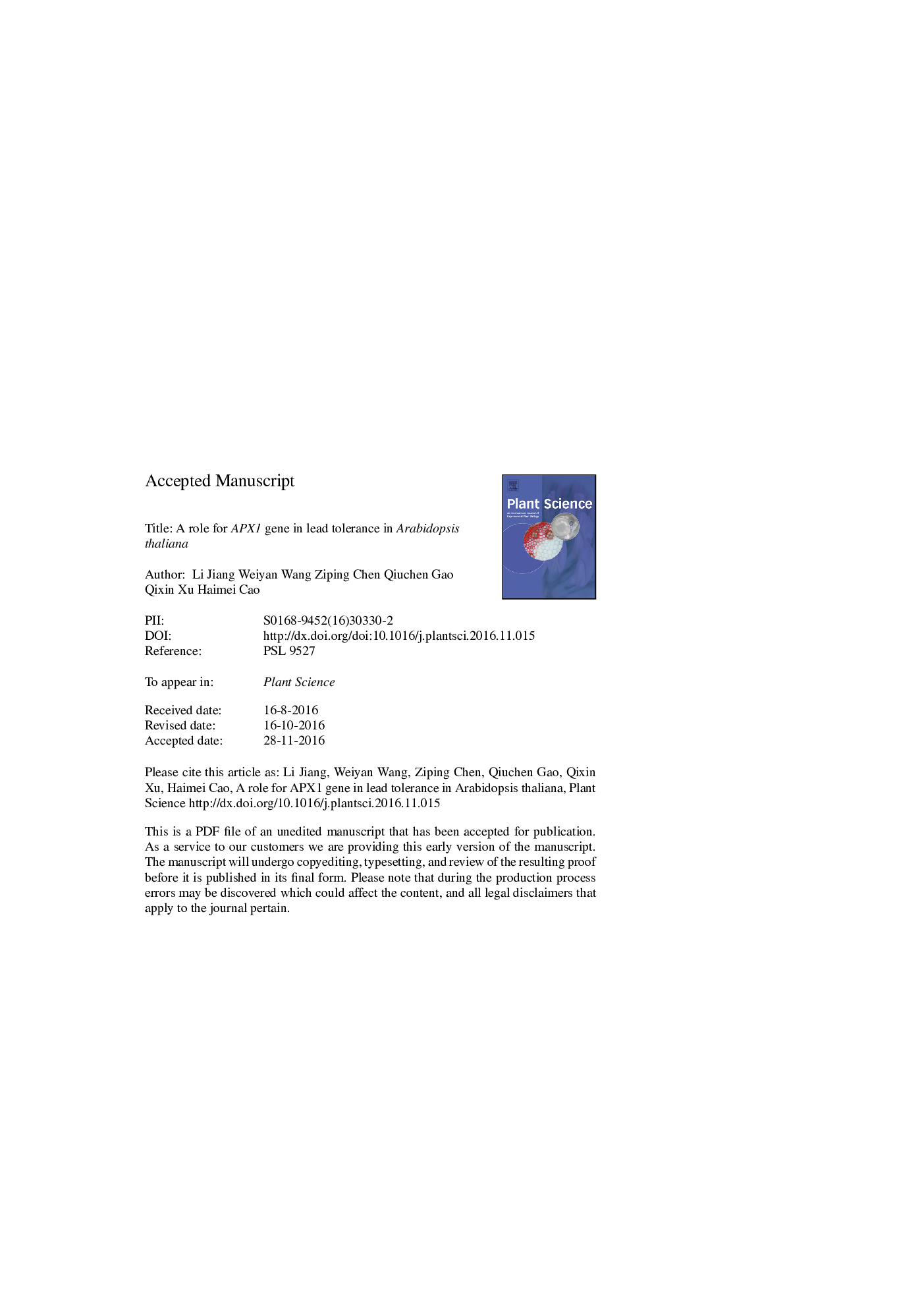| Article ID | Journal | Published Year | Pages | File Type |
|---|---|---|---|---|
| 5515826 | Plant Science | 2017 | 34 Pages |
Abstract
Lead (Pb) is a dangerous and widespread metal pollutant. Numerous studies have been made in understanding heavy metal detoxification and tolerance in plants, however, relatively few are known about the mechanisms involved in Pb stress response. In this study, we provide evidence for a novel role of APX1 gene in Pb tolerance in Arabidopsis. KO-APX1 mutants apx1-3 and apx1-4 showed more resistant than wild type, and the APX1-complementary COM1 restored the growth state of wild type in Pb stress. The two KO-APX1 mutants showed reduced Pb accumulation, which was accompanied by the activation of metal transporters PDR12 and ATM3 genes expression. In addition, glutathione (GSH), phytochelatin (PC) synthesis and related gene GSH1, GSH2, PCS1 and PCS2 expression were also increased in apx1-3 plants subjected to Pb stress. The more improvements in antioxidant enzymes glutathione peroxidase (GPX) and catalase (CAT) activities were found in the mutant apx1-3. Taken together, our results suggest that APX1 gene knockout results in enhanced Pb tolerance mainly through activating the expression of the ATP-bind cassette (ABC)-type transporters and at least partially through GSH âdependent PC synthesis pathway by coordinated control of gene expression.
Keywords
Related Topics
Life Sciences
Agricultural and Biological Sciences
Plant Science
Authors
Li Jiang, Weiyan Wang, Ziping Chen, Qiuchen Gao, Qixin Xu, Haimei Cao,
